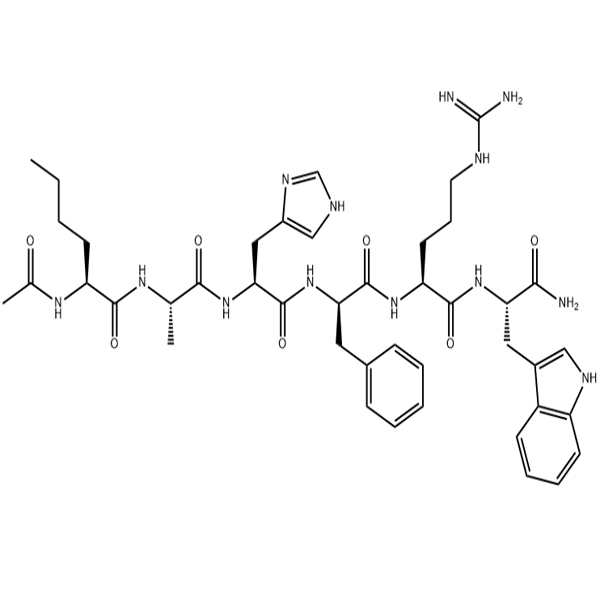Product Profile —- Acetyl hexapeptide-1
Kallikrein and antimicrobial compounds, such as antimicrobial peptides, play a very important role in the natural response of the immune system to potentially harmful substances and the environment. They can induce the release of interleukins (IL), but excessive interleukins may cause facial skin redness and vasodilation. Erythematous and vasodilatory skin diseases, such as rosacea, have very high expression of LL-37. Once activated, a substantial inflammatory response leads to an improvement in inflammatory metabolites, including IL-6 and IL-8. When extracellular matrix such as collagen is hydrolyzed by MMPS, the connective organization of the dermis is destroyed. As a result, areas of skin redness will become more pronounced, capillaries will become brittle and permeable, and inflammation will more easily lead to vasodilation.
Functions and applications – Acetyl-hexapeptide -11. Hair pigmentation, reversing the process of hair whitening
2. Induce skin coloration
3. Enhance skin defense against UV damage
4. Reduce skin erythema
5. Reduce inflammation
6. Protection and repair of UV-induced DNA damage
Mechanism of action -acetyl-hexapeptide -1
AcetylHexapeptide-1 (acetylhexapeptide-1) is a biomimetic peptide that mimics β-MSH and can promote the production of melanin by binding to MC1-R. Therefore, acetylhexapeptide-1 can be used as a natural photoprotective factor and inflammation regulator. At the same time, it can also promote the transfer of melanin from melanocytes to keratinocytes, thereby promoting skin or hair coloration.
Post time: 2025-07-02

